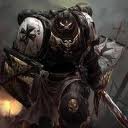 D, on 07 July 2020 - 12:57 PM, said:
D, on 07 July 2020 - 12:57 PM, said:
I do still really like the big army battles in this book, though, really has a good feel of a huge expanse where all sorts of different stuff is going on in multitudes: marines taking crossbow potshots and tossing sharpers from the long grass, assassins jumping out of warrens to slash and retreat, mages blasting forces in open areas, etc. Erikson does the small number of squad stories well, but his big pitched battles never quite capture that same feel of a classic army-vs-army battle incorporating all the tools they have - his big battles tend to end with one giant magic death wave or have one side be all crazy drone-people or whatnot instead.
Yeah I did like this huge field battle; but at the same time, all the elements that were supposedly responsible for the success of the Malaz Empire all met in a huge confusion.
It would have been cool at some point to see the Malazan armies operating against an opposing, different army with all their elements (mages, sappers, heavies etc) at their peak and working as an organised unit; like the way the Romans are portrayed against the tribes at the beginning of Gladiator. I feel all these separate aspects of the army have been described many times, but rarely seen all working successfully as a unit. The Bridgeburners at Pale and Coral; the Bonehunters in Y'Ghatan - all have huge military fuckups and losses. The elements like the sappers in the CoDs, the Marines in the invasion of Lether, all have their own skill set and stand out when not backed up by the rest of the army (even Kalam and the Claw) but we only really see them in isolation. A Malazan army at full strength, with all of those elements functioning as they should would have been awesome to see.
Or maybe that's the point? They are all taught to 'think for themselves.' So previous successes may have been due to those elements working to their own plan in the field; something that can't be repeated every time.
This post has been edited by Traveller: 07 July 2020 - 01:45 PM
So that's the story. And what was the real lesson? Don't leave things in the fridge.
 Traveller, on 01 July 2020 - 10:10 AM, said:
Traveller, on 01 July 2020 - 10:10 AM, said:
 Help
Help

















